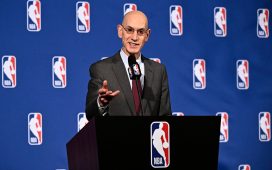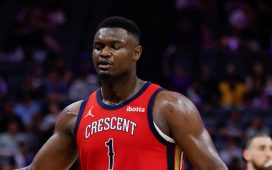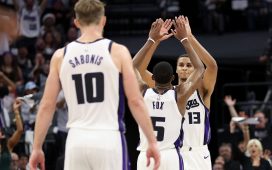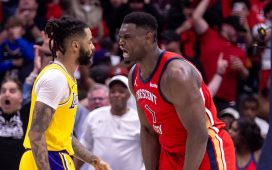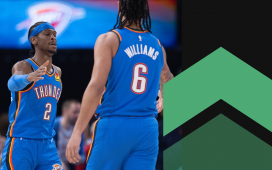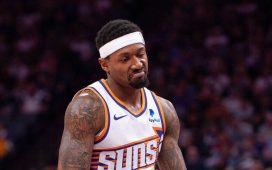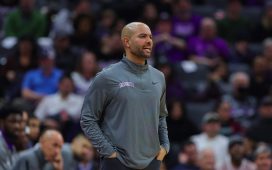The W.N.B.A. finals begin Sunday as the Washington Mystics face the Connecticut Sun, each team looking for its first championship trophy. Shortly after the last bit of confetti falls and the champagne showers end, both teams will join the rest of the league in an off-season that could reshape the future of the W.N.B.A.
One key focus: Mental health care coverage for the players that echoes that of their counterparts in the N.B.A. The men’s league made policy changes to increase mental health resources for its athletes in August after players pushed for new mental health care coverage in their own collective bargaining agreement.
The W.N.B.A. players’ union’s agreement with their league ends in October, after the union opted out of their collective bargaining agreement in November 2018.
A few days after the N.B.A.’s announcement in August, the Las Vegas Aces star Liz Cambage published a piece in The Players Tribune describing her own anxiety and how it has affected her life and career. She praised the N.B.A.’s new rule, saying they “deserve a ton of credit.”
“But at the same time, I won’t lie — it’s disappointing to me that we’re praising anyone for ‘progress,’ when so many women are being excluded from it,” she wrote. “I mean … doesn’t the W.N.B.A. deserve this same program?”
Access to mental health care across professional sports is far from level. Each league has different policies, and often individual teams do, too. More sports’ governing bodies are being asked to create their own plans as more professional athletes speak up, normalizing what remains a stigmatized topic.
In the W.N.B.A., there is no standard of care when it comes to mental health care coverage. On one team, players may have access to multiple mental health care professionals. When they are traded, players may join a team without the same resources. And because players are often traveling, even if they do find a provider or a practitioner they trust, it can be hard to make regular appointments or even fill prescriptions that require frequent check-ins.
That’s what Imani McGee-Stafford found when she was traded between the Chicago Sky, Atlanta Dream and Dallas Wings.
“There’s no baseline in terms of what you are provided or what you are required to provide in terms of mental health services,” McGee-Stafford said. “It’s definitely something that’s lacking in our league.”
The Los Angeles Sparks forward Nneka Ogwumike is pushing for change as president of the W.N.B.A. players association.
“We just want to ensure every player in the W has access to the same professional resources from team to team,” Ogwumike said. “As we look to turn the dial on mental health in sports, and more specifically for women in sports, ideally it’d be simple: We would have the same resources as the men do.”
When asked to comment, the W.N.B.A. pointed to its current resources and to the upcoming discussions in the off-season.
The success of these programs will hinge on catering toward the athletes, said Dr. Victor Schwartz, chief medical officer of the Jed Foundation, which is working with both the N.B.A. and the W.N.B.A. “An excellent mental health program for a sports league should look like an excellent program for any community, in that it’s tailored to the specific needs, challenges and resources of the particular population.”
Players have voiced hope that the tailored program would cater toward their chaotic schedules while being sensitive to the fact that one mental health professional can’t fit the need of all of the players.
“The problem with social media and pop culture is we see one specific image of a victim or someone dealing with mental health or dealing with mental illness,” McGee-Stafford said. “The more stories we see the more we’re able to help break the stigma.”
The former W.N.B.A. star Chamique Holdsclaw has talked about being diagnosed with depression and bipolar disorder. Philadelphia Eagles offensive tackle Lane Johnson shared his battled with anxiety ahead of the 2018 Super Bowl. Olympic gold medalist Michael Phelps has discussed his depression and in 2018 became the face of with online therapy provider Talkspace. N.B.A. All-Star DeMar DeRozan opened up about his struggle with depression, as did Kevin Love, the Cleveland Cavaliers’ All-Star forward, when he penned an article for the Players’ Tribune.
As W.N.B.A. players continue to push for mental health care within their workplace, McGee-Stafford hopes they can do more than inspire change among fellow professional athletes.
“If our sports leagues have mental health care and mental health initiatives hopefully that can trickle into the real world and for people with everyday jobs,” she said.
